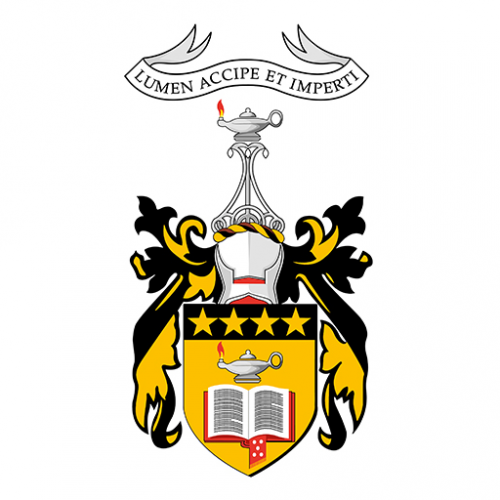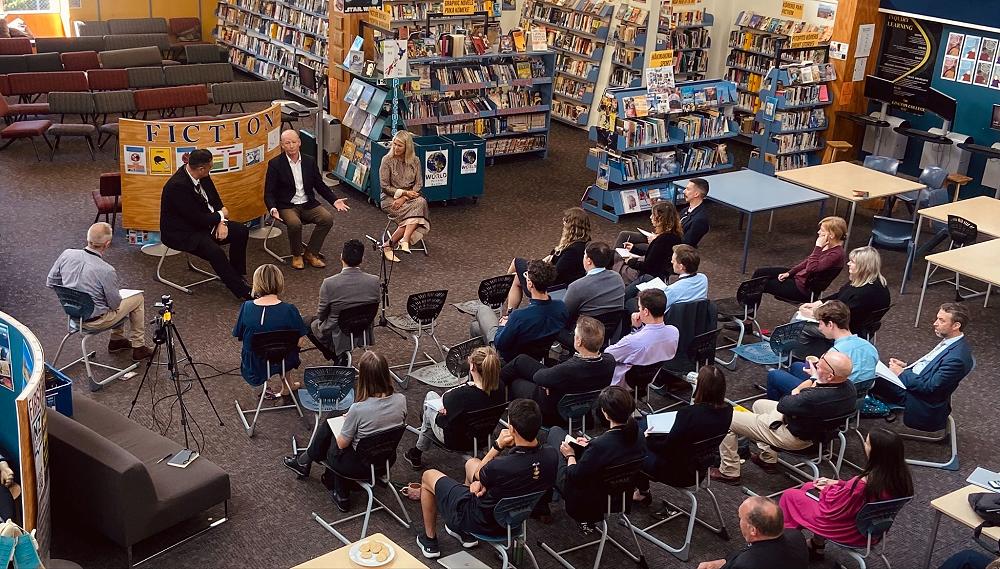
‘Research-invested schools are creating a climate of change’: The establishment of the WC Research Centre
In a recent blog post, we shared our experiences with the Professional Refresh initiative that was piloted in Term Four last year. A second iteration has now been launched. The response of teachers has been incredible, and we now have over 40 teachers who have opted in to read and reflect. We look forward to sharing their learning later in the year when we publish a second collection of reflections. The Professional Refresh is part of our drive to foster a research culture at Wellington College and sits under the wider umbrella of the newly established WC Research Centre.
In the last decade or so, many schools overseas have established a research centre, which includes over 50 in Australia. As Dixon states, placing the use of research practices and evidence at the ‘heart of school’, ‘enriches day-to-day decision-making’, and subsequently ‘enables the development of a strong professional capital and framework for self-extending transformation.’ (Dixon, 2018). These are schools that we refer to as ‘research-invested’ or ‘research-engaged’, in which teachers are both the consumers of expert knowledge and are also the knowledge generators. While this type of research and authentic evidence-based engagement benefits the experience and outcomes of learners, it also supports the development of teachers and enhances their experience.
The Crowther Centre is the school-based research centre at Brighton Grammar School in Melbourne. The Crowther’s tagline is that it is the ‘engine that powers school improvement’. I recently spent time with Dr. Mark Dowley at Brighton Grammar. He attributes the position of the school as the leading boys’ school in Victoria, being a direct result of the development of and activities of the Crowther Centre over the past decade.
Dr. Hugh Chilton, Director of Research and Professional Learning at the Scots College in Sydney, sums it up best in his comment that research-invested schools are creating a ‘climate of change’ in their ‘valuing of and strategic commitment’ to research, rather than ‘merely using it.’ This is a key shift and something that we are keen to explore under the guise of the WC Research Centre. While most research-invested schools in Australia are independent schools, as Hugh points out, there is cause to believe that this ‘phenomenon’ will gain wider traction outside that sector. This is a gap that we aim to fill in the New Zealand context. There is an opportunity for WC to innovate, lead the way, and share our learning with other schools.
The in-school benefit of establishing a research centre is the impact of activities on the experiences and outcomes of our ākonga. Equally, we have a focus on equity and opportunity for our region, which is also a driver. Whatever we learn, develop, and do well, we give it away.
Our newly established Research Centre provides a broad structure for activities connected to:
Fostering a research culture
Student experience and outcomes
Teacher’s professional development
Conference and information events
Community engagement and published output
Collaborative relationships with external entities
As we begin this journey, we hold four tenants at the centre of our approach. Firstly, we start small, build up organically, and establish the efficacy and trust of our teachers. Perhaps most importantly, we connect the research and wider mahi to our needs at Wellington College. As Dann underscores, any teacher engagement with research needs to be focused on the ‘real lives’ and learning of teachers and students (Dann, 2018). Beyond this internal focus, we share everything that we do with other schools and publish our mahi to our community. Thirdly, we will connect the centre’s activities and ideas with the formalised collaborative relationship that we have established and developed with Te Herenga Waka - Victoria University of Wellington. This brings a range of benefits, but in regard to any research that we carry out, a degree of rigour is imparted. And finally, through our work in the research centre space, we enhance the experience of teachers in the classroom and beyond. We owe it to our teachers to explore ways that we can support them to thrive.
As we develop our research centre this year, several new activities will be embedded and or introduced. The Professional Refresh has been referenced and will be a key space in which our teachers engage with published knowledge. They will apply this to their practice and consider where enhancements can be made. A key consideration during this second iteration is how we maximise the utility of the learning so that the impact goes beyond the classroom and practice of the reading teacher.
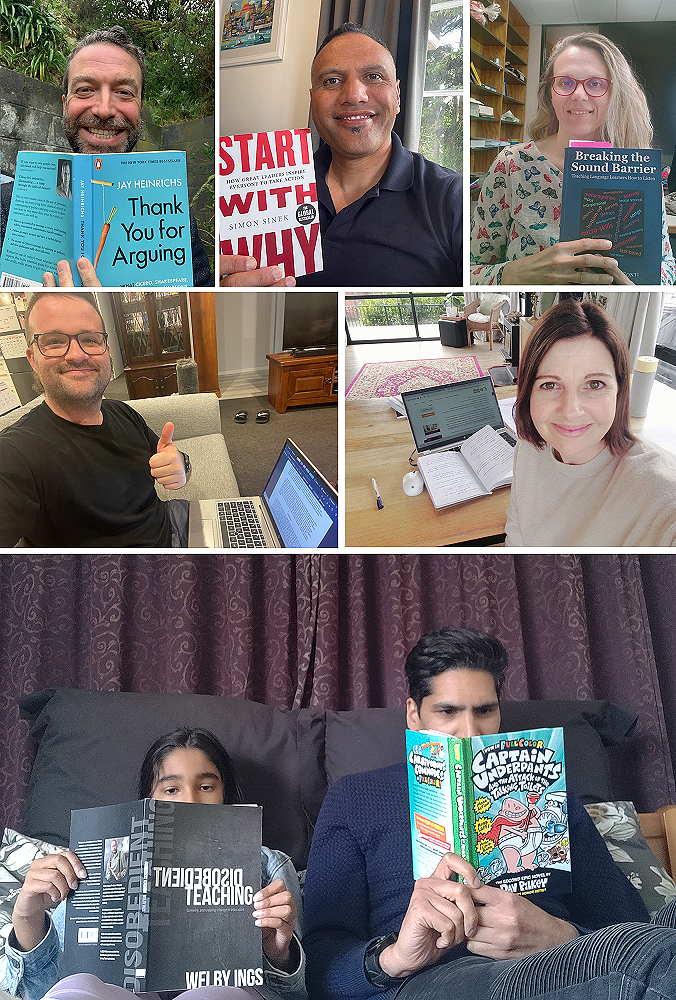
Beyond consuming and applying new learning, we also want our teachers to create knowledge. To this end, we have launched the WC Action Research initiative. As Mertler helpfully summarises, the main goal of action research is to address ‘local-level problems’ in the classroom with the ‘anticipation of finding immediate answers to questions or solutions to those problems (Mertler, 2018). The benefits of teachers engaging in action research include the improvement of educational practice, professional growth, and teacher empowerment (Mertler, 2021). Part of the Research Centre’s kaupapa is that teachers opt in, rather than have a related initiative imposed. It was warming to receive nine research proposals for this first action research cycle. This involves 12 teachers (one project is a group project) and begins before the end of the term with a research workshop at Te Herenga Waka - Victoria University of Wellington.
Our collaboration with Victoria (He Waka Taukaea), as mentioned above, plays an important role in our mahi going forward. In this space, we look to build on and expand the activities that we initiated last year. Already this year, all Year 13 History students have attended a first-year History lecture at the Kelburn campus. We have teachers and lecturers running and set to run open-access Scholarship workshops at Rutherford House, to mention just two activities in play.
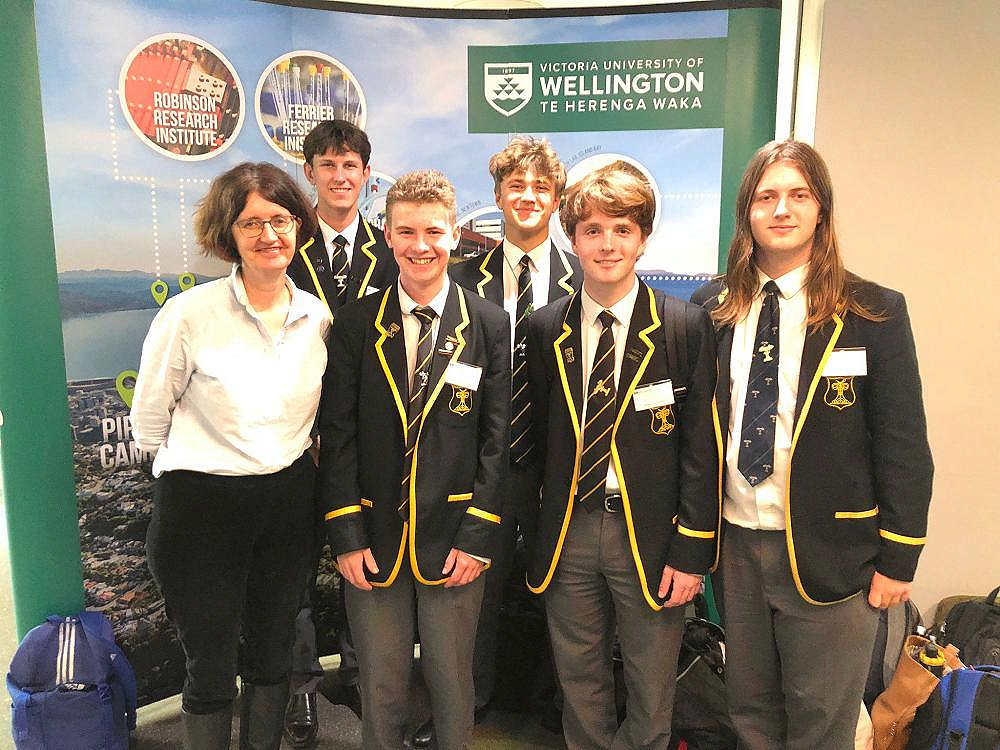
WC Open Source is an exciting and innovative space that we are piloting this year. The idea is that we create an online repository of teaching resources that can support teachers and students beyond Wellington College. Before the end of the term, we will launch the pilot activity, which involves our own Kasper Black (Assistant LAL Mathematics) creating and sharing Mathematics resources, with a particular focus on the Year 11 space.
Developing the study habits of our students is a key piece of work for us going forward. As such, we have partnered with the Anglican Church Grammar School (Churchie) in Brisbane. A Learner’s Toolkit has been developed by their research centre and comprises cognitive and study strategies and routines that are supported by the cognitive sciences and translated into the secondary context. Our Year 11s are engaging with this work as part of the Skills for Life programme that occurs on Friday mornings. Other year groups are accessing this learning as part of the Coll Time programme. This mahi has the potential to be transformative for our young people, both in their time at WC, but also beyond.
The Research Centre also sits behind the Wellington College Leadership Institute that was launched this year. This involves 20 teachers who have opted into a programme of structured learning about leadership. This comprises workshops, readings, reflection, and mentoring about leadership. This will grow our leadership capacity, provide opportunities for our teachers to learn about leadership, encourage leadership aspirations, and support our community by teachers taking up external positions. We intend for this course to be a sustainable activity and something that we offer each year.
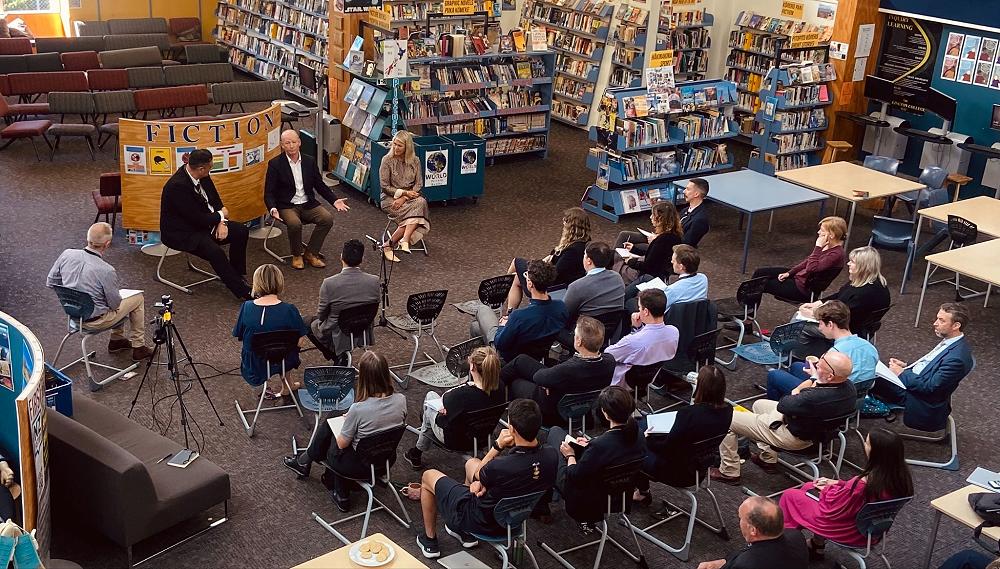
Published output is another focus of the Research Centre. We already share aspects of what we do via this blog but we have also moved into physical publication. An example of this is the Professional Refresh Annual Collection. We intend to publish a journal that collates the findings of the action research projects. We are also keen to explore the production of podcasts and even a Youtube channel.
We are excited by the possibilities and impact of moving into the research space and forging ourselves as a research-invested or research-engaged kura.
Pūrākau (storytelling) is used to transmit ideas but also can be used to create shared meaning and identity (Lee, 2009). This pūrākau will inspire and inform the activities of our Research Centre.
Ngā Kete Tuatoru (The Three Baskets of Knowledge)
Tēnei au, tēnei au te hōkai nei i taku tapuwae
Ko te hōkai-nuku, ko te hōkai-rangi
Ko te hōkai o tō tipuna a Tāne-nui-a-rangi
I pikitia ai ki te Rangitūhāhā, ki Tihi-i-manono
I rokohina atu rā, ko Io-Matua-Kore anake
I riro iho ai ko ngā Kete o te Wānanga
Ko te Kete Tuauri, ko te Kete Tuatea, ko te Kete Aronui
Ka tiritiria, ka poupoua ki a Papatūānuku
Ka puta te Ira-tangata
Ki te whai-ao, ki te ao-marama
Tīhei mauri ora!
This is the journey of sacred footsteps
Journeyed about the earth
Journeyed about the heavens
The journey of your ancestor Tāne Nui ā Rangi
Who ascended into the heavens to Te Tihi o Manono
Where he found Io the parentless
From there he retrieved the baskets of knowledge
Te Kete Tuauri
Te Kete Tuatea
Te Kete Aronui
They were distributed and implanted about the earth
From which came human life
Growing from dim light to full light
Behold it is the breath of life!
Tāne had a calling: This represents curiosity, a hunger for knowledge, a desire to share knowledge, and a view to improve educational outcomes for young people. Our research centre aims to ignite this spark that exists in our teachers.
Tāne faced challenges, and called upon his siblings: This represents the challenges that face teachers to engage in research such as an inability to access the resources, funding, or dedicated time. It also speaks of the commitment, resilience, and energy expected of our teachers. Our research centre aims to provide a support structure to ensure that the natural challenges of inquiry do not slow down the researcher.
Tāne faced equally challenging obstacles on his descent from the heavens: This represents the challenge of implementation - what do we do with the knowledge once we have it in our kete? Our research centre promises to create conditions for sound research to be implemented and sustained.
The three baskets of knowledge were distributed, and implanted about the earth: This represents the importance of sharing the knowledge that results from a dedicated inquiry. Our research centre aims to create platforms to support teachers in sharing their research, including contributing to our open-access blog, presenting at conferences, and working with teachers in other kura.
We look forward to sharing this journey with you as it unfolds. We go slow and let things grow organically.
Mā te kimi ka kite, Mā te kite ka mōhio, Mā te mōhio ka mārama
Seek and discover. Discover and know. Know and become enlightened
